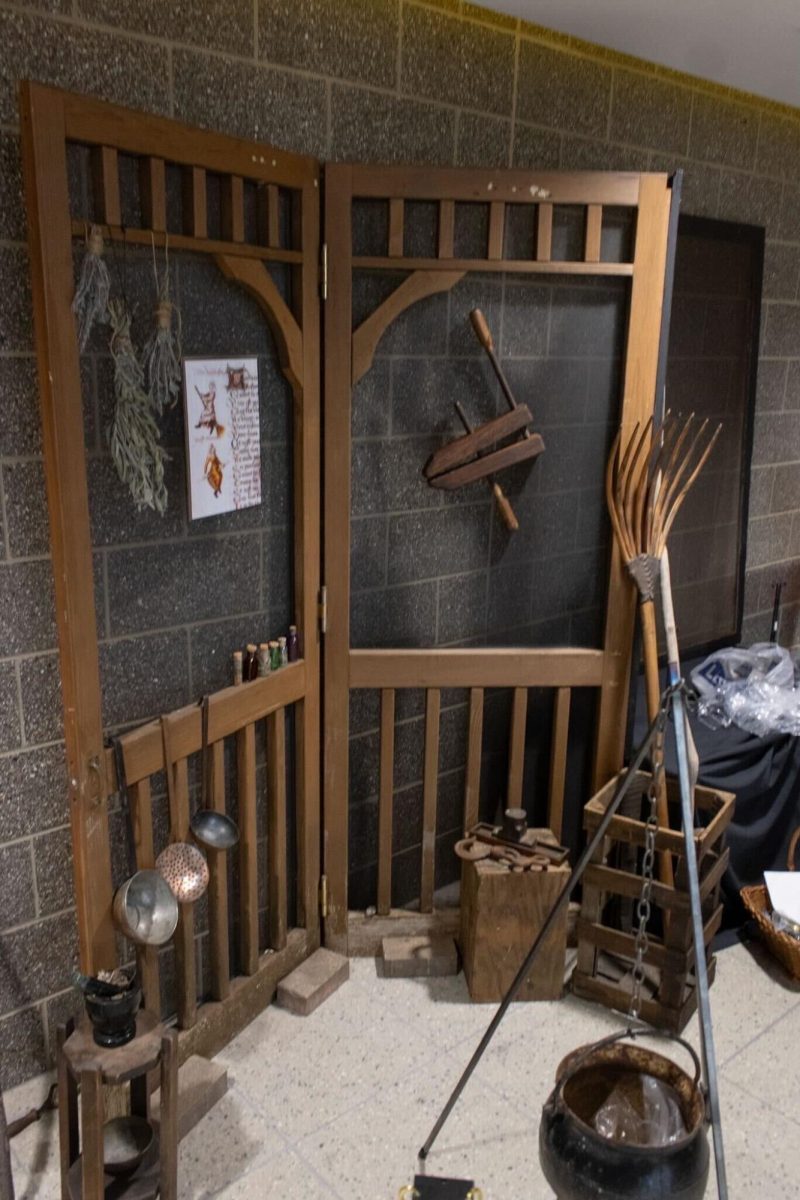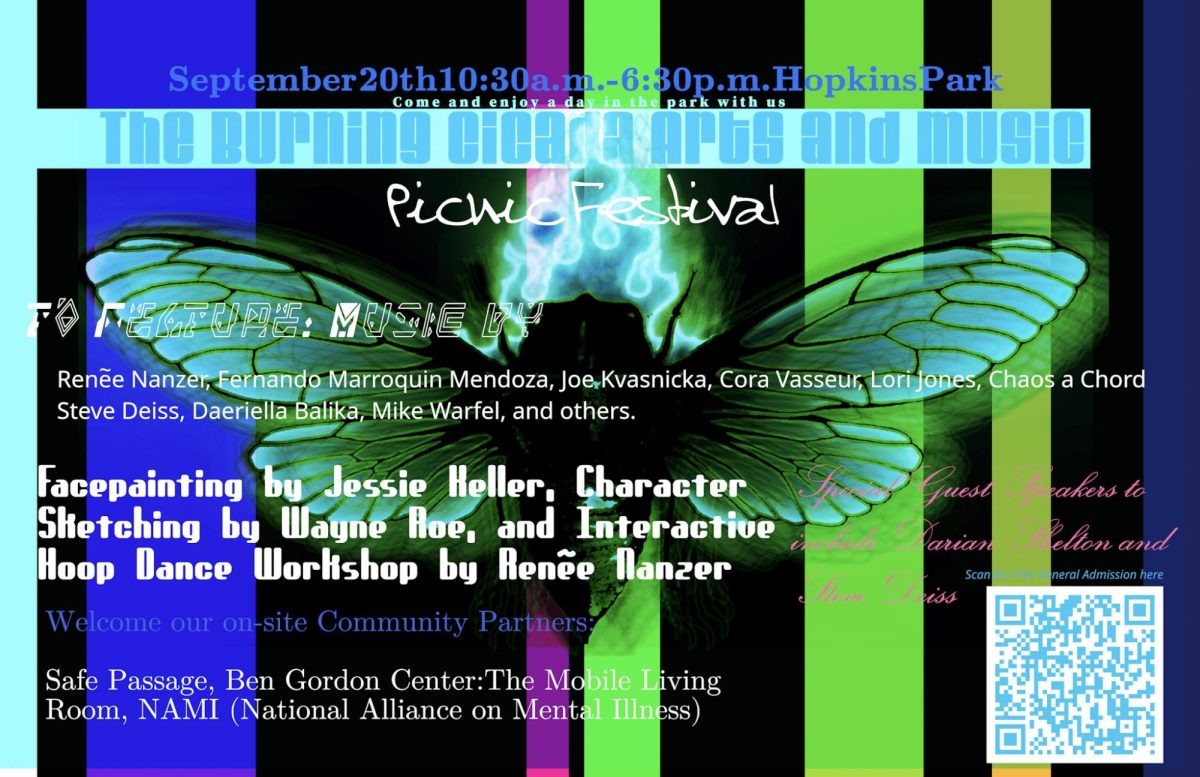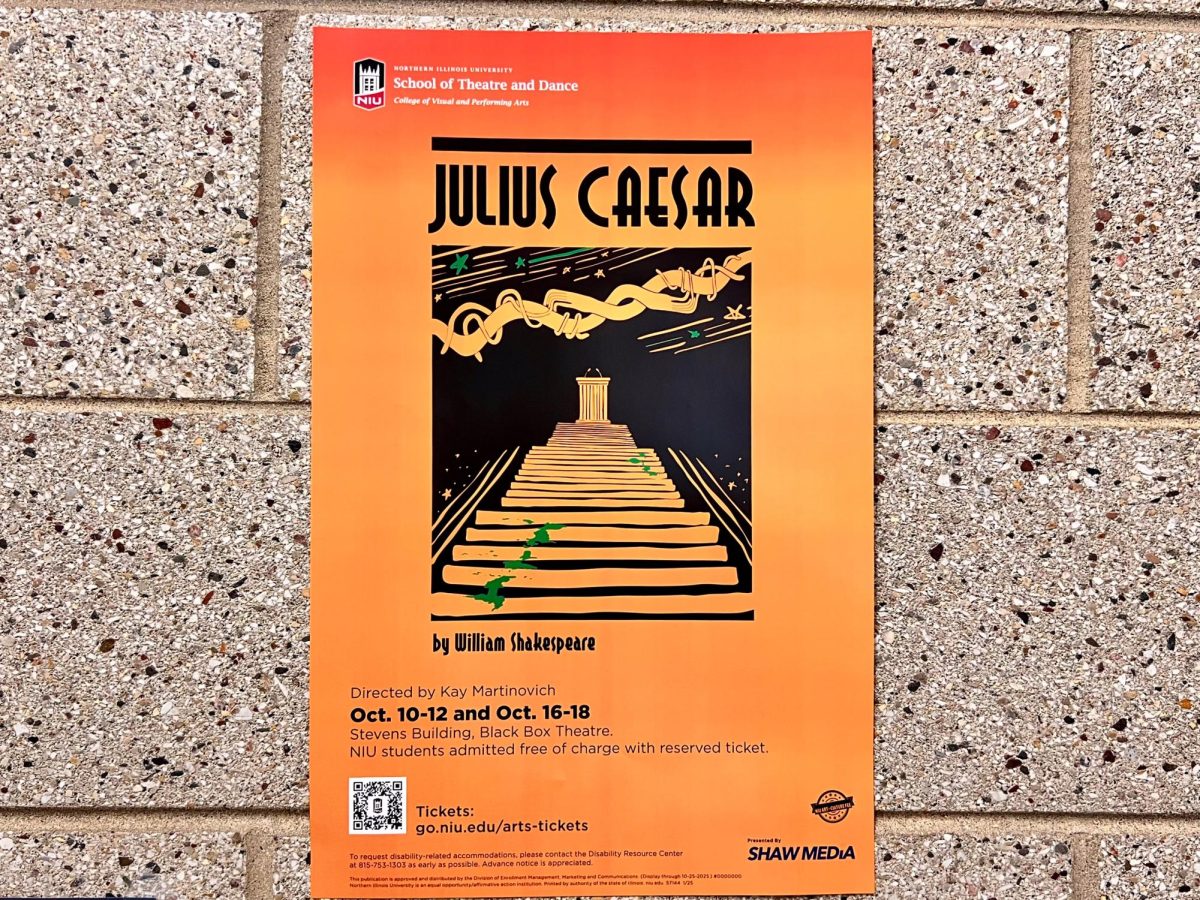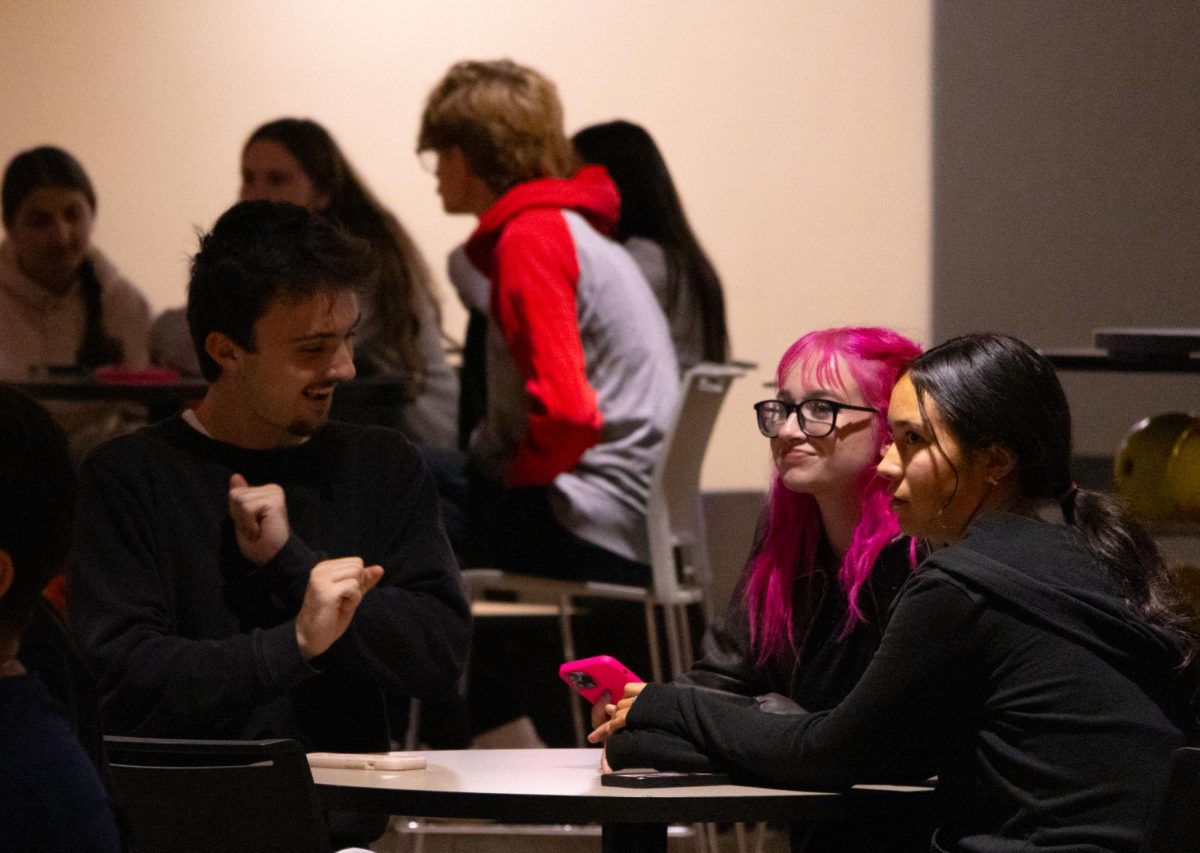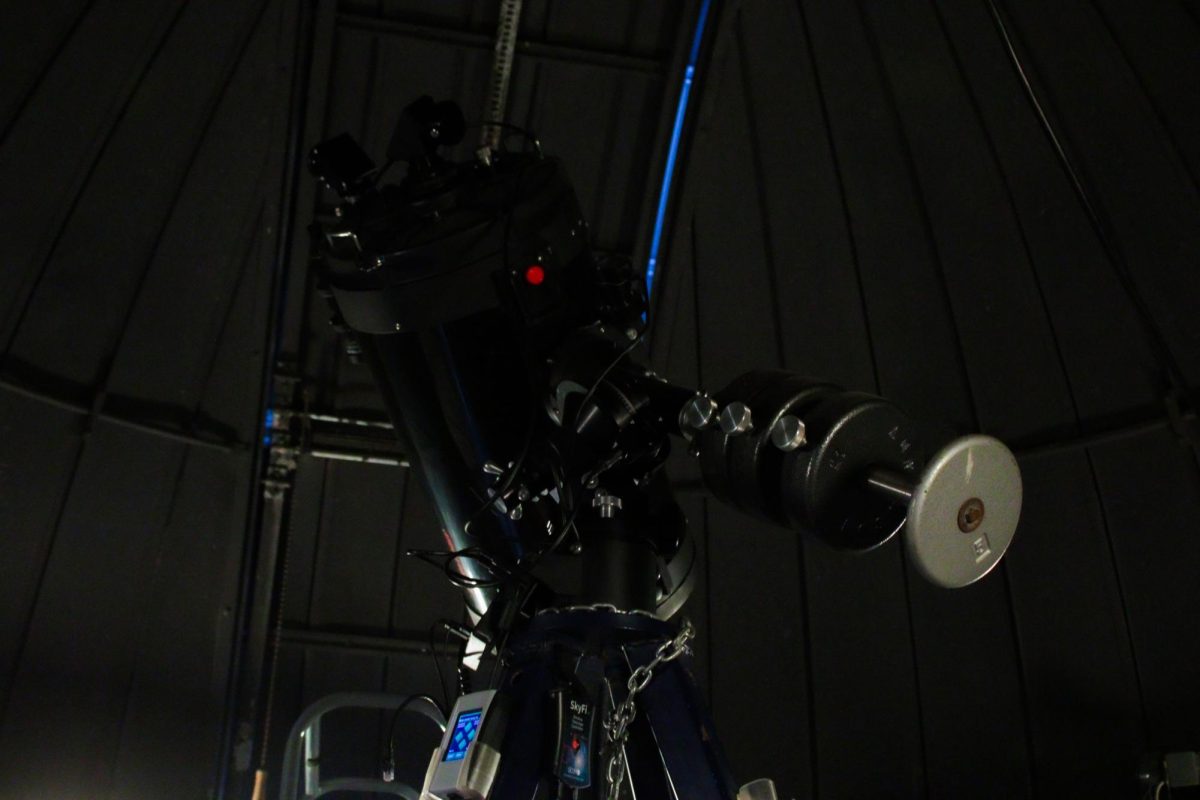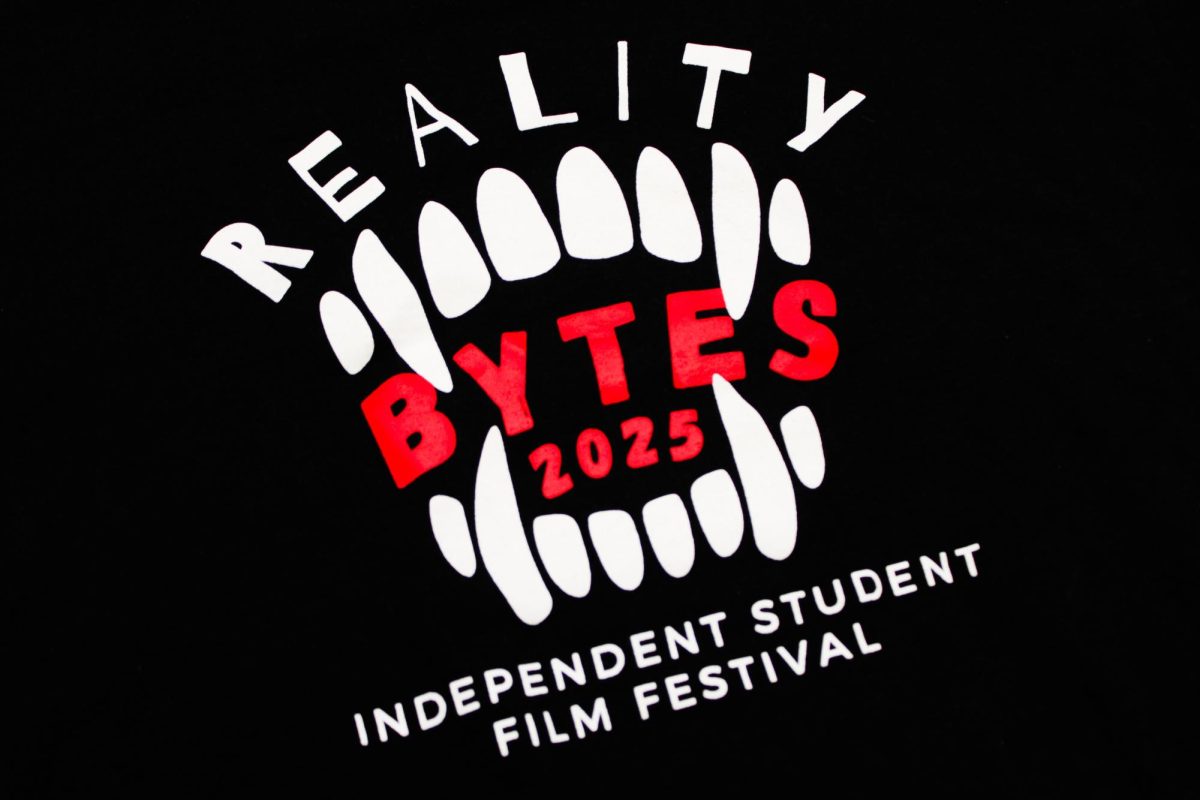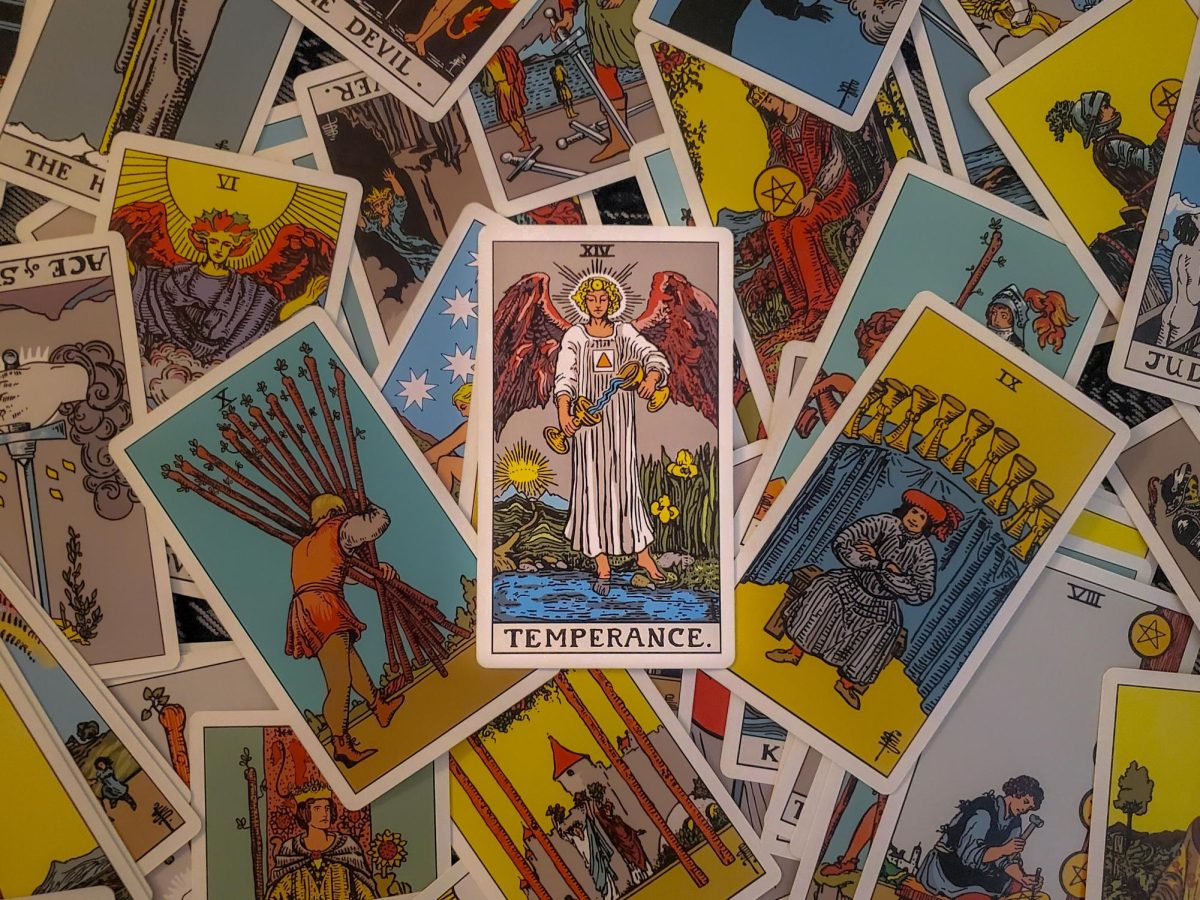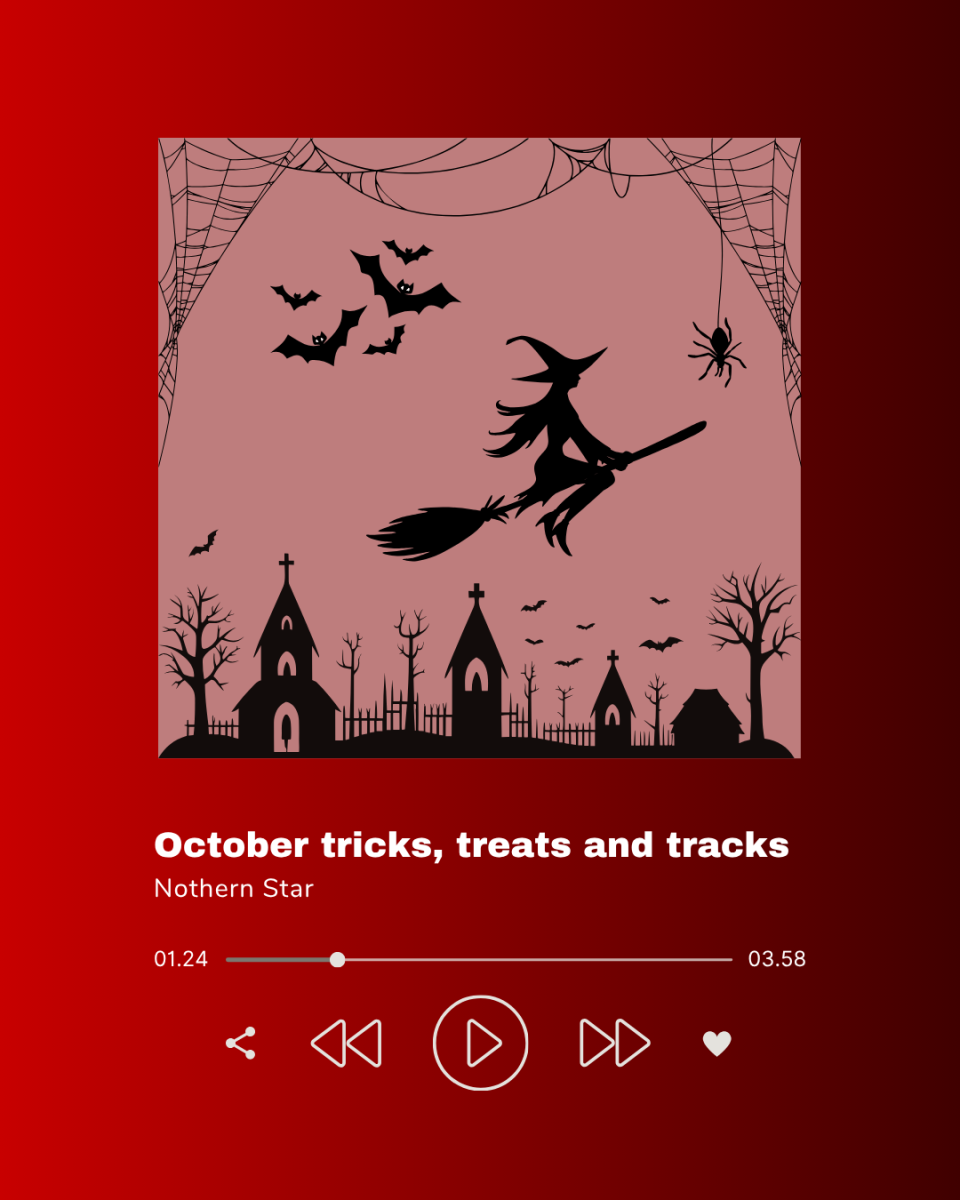DeKALB – Hushed whispers filled the air as audiences waited with bated breath, then the stage was set and the crowd was taken back in time by the actor’s stunning performance.
With painstaking detail, the cast and crew have recreated a slice of history, mixed with a twist of feminist charm and wit.
“Witch,” is a tale of a woman accused of witchcraft because she doesn’t fit society’s expectations for her gender, according to the production’s dramaturg Elizabeth Nowak, a freshman and double major in anthropology and theater studies.
The play is a reinterpretation of the 1621 play “The Witch of Edmonton” written by John Ford, Thomas Dekker and William Rowley; the original play was in turn dramatization of the life of Elizabeth Sawyer, a woman from England found guilty of witchcraft and executed.
The play is set in Edmonton and has its inhabitants tempted by deals with a devil. Elizabeth, played by second-year graduate acting student Cornelia Hayes, proves that there’s more to her than society’s preconceived notions of her identity, and she will be easily swayed into the devil’s whims.
For instance, when she meets the devil, going by the name Scratch, played by Hardy Louihis, a second-year graduate acting student, they have this amusing back-and-forth exchange. Scratch thinks it will be easy to get Elizabeth to sell her soul because she’s an outcast and people think she’s a witch, but she more so just banters with him and then refuses. She tells the devil “no,” and he’s confused, which is highly comical for the audience.
Nowak feels like the play’s message is important even after 400 years.
“Women’s stories have been under-told throughout history, and this play gives us a chance to tell female and queer stories that were previously told in a bad light,” Nowak said.
To complement this message, Nowak was also in charge of creating an exhibit in the lobby of the Stevens Building of historical pieces to aid immersion for the audience to shed light on some of the deeper meanings of the play.
Doing the research for the play and exhibit also helped Nowak to connect with the characters.
“Because she was a real person, it feels more intimate, researching her (Elizabeth’s) life and all the different iterations of who people thought she was,” Nowak said.
After the play, the audience was given a chance to scan a QR code to complete a survey regarding Nowak’s research.
Overall, the play was very well put together. From the settings to the costumes and lighting, everything just came together well.
The costumes were done well and helped give a feeling of the time period. The outfits, such as Frank’s suit, really felt like they were from the 1600s, and those silly shoes with fuzzy- like ball on top really helped the audience go back in time.
“I think all of the designers for the show were freaking locked in when it came to understanding what we needed for the show, and they did everything beyond phenomenal,” said Kyara Chisolm, who played Winnifred and is a junior acting major.
Chisolm also said she thinks the play is important because it’s about holding on to hope.
It’s not all doom and gloom, however, as the ending of the play had a much better ending for Elizabeth compared to her real-world counterpart.
“I liked the burn it down and build it back up kinda thing, like a phoenix motif, rising from the ashes,” Patrick Swanson, a Lemont resident, said.
The play will have three more shows: 7:30 p.m. on Feb. 29, 7:30 p.m. March 1 and 2:00 p.m. on March 2 in the Stevens Building’s Black Box Theatre.
Patrons must order tickets online prior to the event. Tickets are free for NIU students, $20 for the general public, $12 for non-NIU students and $18 for seniors.


